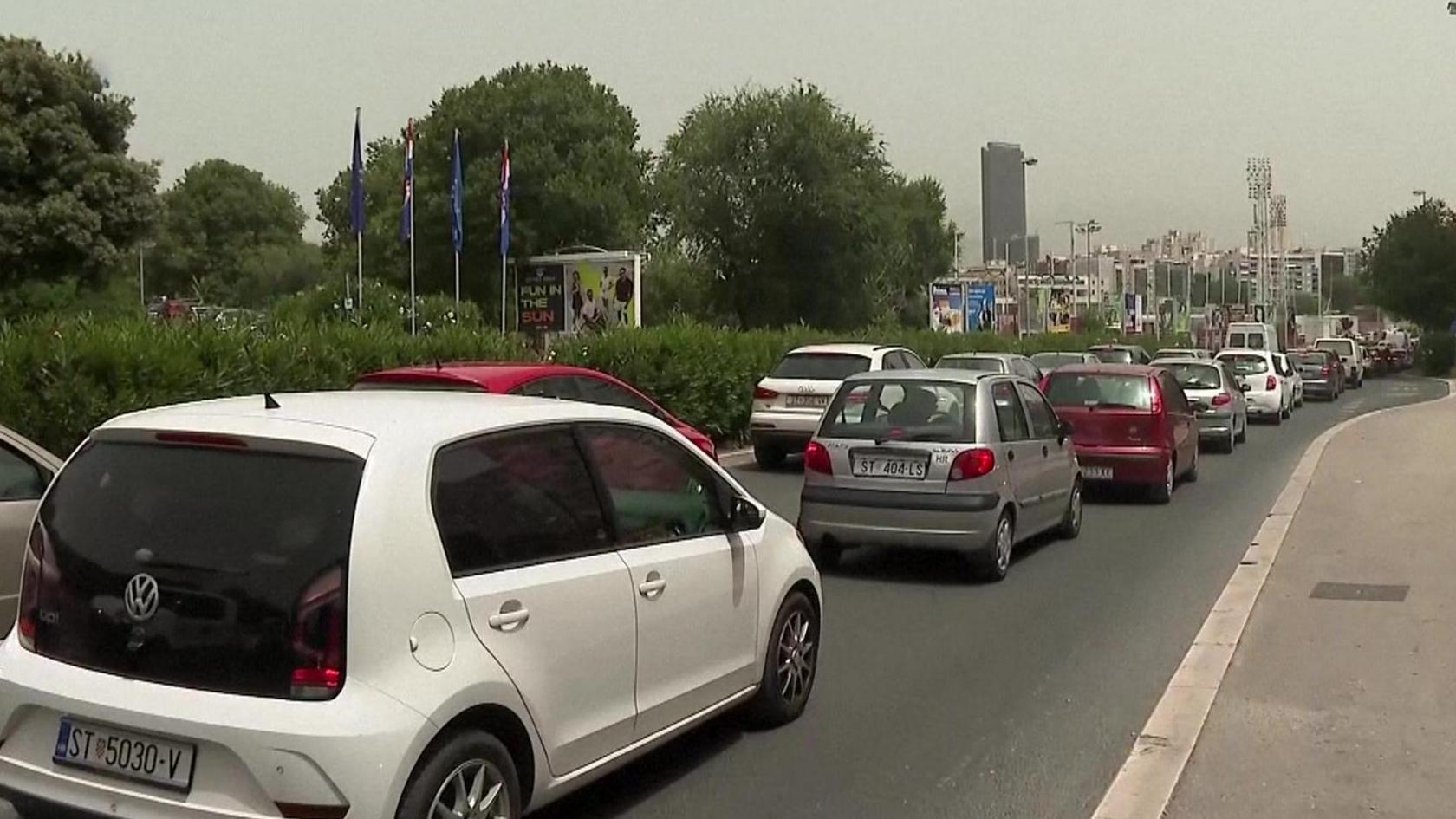Balkans hit by blackouts as heatwave persists

Split was one of several cities where traffic light failures caused gridlock
- Published
Four Balkan countries suffered simultaneous power cuts lasting several hours on Friday as the region sweltered in a summer heatwave.
Albania, Bosnia, Montenegro and large areas of the Croatian coast were hit by the afternoon blackouts, brought on by surging demand for power after households switched on air-conditioning to combat the high temperatures.
In Bosnia and Croatia, traffic lights were knocked out, causing transport chaos in Sarajevo, Split and other big cities.
Suppliers said they had largely restored power by the evening, but were still trying to identify where the failure had occurred in the four countries' interlinked power systems.
The shutdowns were first reported at 13:00 local time (11:00 GMT), with even water pumps grinding to a halt in Montenegro's capital, Podgorica.
The loss of power also dealt a blow to the tourist season in Croatian resorts, with holidaymakers in Dubrovnik left in disarray after restaurants, pubs and supermarkets closed their doors.
Temperatures across the region neared 40C as the long, hot afternoon wore on.
Montenegro's Energy Minister Sasa Mujovic said on national TV that "a sudden increase in power consumption due to high temperature" was to blame.
Montenegro's Vijesti TV carried reports of a fire in a power transmission line in a rugged area near the border with Bosnia, although the station did not make clear how this could be connected with the blackouts.
In Albania, officials said power was restored within half an hour, but that there was a high risk of further blackouts, as energy usage was still high.
Energy production in the western Balkans is shifting away from the use of coal, which accounts for much of the region's greenhouse gas emissions.
But despite a big drive to invest in solar energy, the creaking power infrastructure is not yet fully prepared for the change, industry officials say.